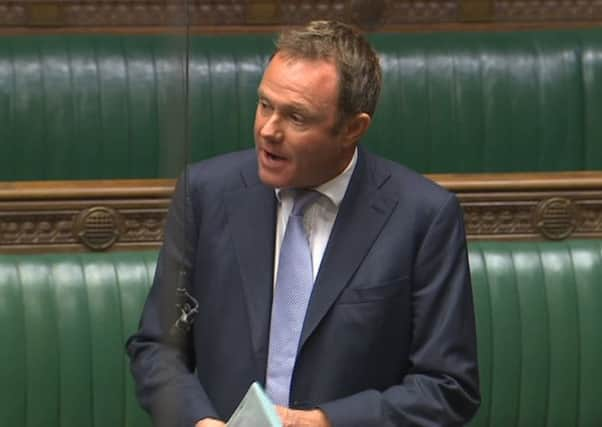New planning laws ‘could threaten Sussex countryside’


The Housing and Planning Bill, which passed through its second reading in Parliament on Monday, could see ‘permission in principle’ granted to sites earmarked for development in official documents like local plans.
The Government says the legislation will provide ‘certainty’ to developers and provide a much-needed boost in house building.
Advertisement
Hide AdAdvertisement
Hide AdBut Campaign to Protect Rural England (CPRE) Sussex branch fear this will lead to development on greenfield sites not yet ‘properly assessed’.
East Sussex-based CPRE member John Kay said: “While ministers’ desperation to get house building moving is understood, they will achieve nothing until they escape the sway of false developer complaints that it is the planning system that is to blame.
“They must instead appreciate that actual house building is constrained by other, financial, considerations.”
The bill would allow the Secretary of State for Communities and Local Government Greg Clark to grant in principle permission for sites in new brownfield registers, local and neighbourhood plans.
Advertisement
Hide AdAdvertisement
Hide Ad‘Technical’ details would then be resolved by local councils.
It was previously thought the rules would apply only to brownfield sites.
If an authority has a poor record on planning, the Planning Inspectorate could step in to allow non-major development applications.
Arundel and South Downs MP Nick Herbert told MPs that supply of greenfield land was restricted to prevent random development.
Advertisement
Hide AdAdvertisement
Hide AdHe said: “The Secretary of State has rightly identified the fall in home ownership and the lack of affordable housing as a serious national problem - perhaps our most pressing one. On the other hand, we must also acknowledge that it is in the national interest to protect the countryside and our communities.”
Mr Herbert argued the planning system had a split personality, and said the Government must keep faith in localism, give assurances over infrastructure, focus on good design and address ‘fundamental barriers’ in the system to gain public support for housing.
He added: “Kindly Dr Jekyll remains committed to a plan-led system but Mr Hyde, in this bill, is allowing the secretary of state to take powers to grant planning permission directly for major infrastructure projects and give permission in principle, perhaps not just on brownfield land but for other sites too. We need clarity about that.”
The bill will also extend the Right to Buy policy to housing association tenants, grant additional powers to councils to deal with rogue landlords and allow the Government to step if councils do not complete local plans by 2017.
Advertisement
Hide AdAdvertisement
Hide AdCouncils will have to compile a register of brownfield land, with targets to grant permission for 90 per cent of suitable sites by 2020.
West Sussex-based CPRE member Bill Freeman said: “This is one move to far. It’s the construction industry and land-banking developers that are failing, not the local authorities.
“Bully boy tactics will not solve this problem.”